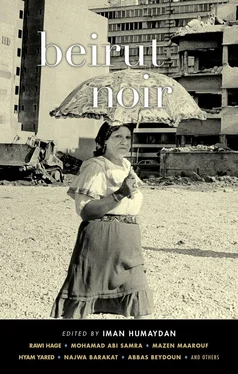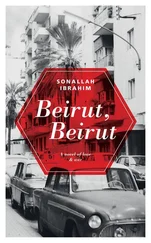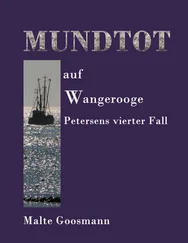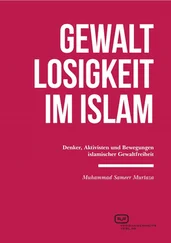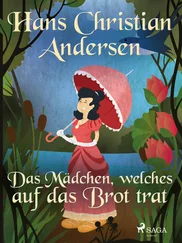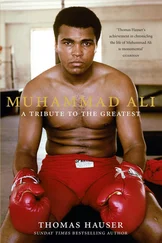Where are you taking us, Dad? To Beirut, what is this Beirut... where is it located? Is it frightening? Why did Harut burst into tears when his father told him, “We are going back to Beirut”? Is there enough space over there for me to travel with my kite that I handle like a helmsman, all of whose dreams are contained on his ship? Will there be a mukhtar there whom I will force to buy a new tarboush every week because I stole his and hid it in the cellar where I had a dozen or more, into which I crammed my childhood treasures: the biggest egg, the biggest turtle, the biggest heart-shaped stone, the biggest fossilized shell, Miss Noura’s glasses, my friend Rendala’s hairband, my colored marbles, the first lira you gave me, and a beautiful picture of you between my grandfather and grandmother... Will they call us over there to help shovel the snow from the roof of the school? We’ll rush over, running like soldiers to the most important battle. Our heads will swivel around, ultrasurprised and buoyant, when we arrive and see our classrooms converted into a warm shelter for bobwhites, owls, and some stray cats and dogs, even jackals. The cold made them all forget their antipathy toward each other and they shared our school’s roofs with mutual empathy.
Oh Dad, what else can I say? I have a lot of questions, the most important is how can I pack up, right now in one night, all of my things and memories, what place can contain them... can Beirut contain them?
We were stuffed into Amer’s Honda with all the bags we could find and the things Farah considered necessary... I didn’t know where my siblings got the song they kept repeating throughout the journey, “ Toot toot, to Beirut... Daddy take us on a trip... ” It compelled my father to shout, ordering them to calm down the first time, and to yell, “Silence!” the second... But then he smiled at Zeina, looking at me in the mirror when she asked him, “Daddy, can we pick olives and grapes there like Rustom and Amir said, or only red apples like Majd told me?”
Did Beirut appear, in the way I saw it from the windows of the car, high ? That is to say, in ecstasy ? (This is a word that I hadn’t heard before and that I’m not good at using. Remembering it now, it seems really appropriate, after learning its meaning and having experienced it when I smoked hashish for the first time with Harut and our friends.) Lying back innocently, permitting her beautiful naked body to be torn apart by guests, visitors, and her own people, Beirut — accustomed to many invasions, of foreigners, greedy people, earthquakes, and tremors — always came back even more beautiful and glorious than before, that’s what we learned in our history books. What does it feel today when its people are dividing up its meat and leaving only the bones? Do cities go mad due to their excess beauty, and unable to stand their own perfection, consume themselves? Will they come back again more beautiful than before? Will their splendor be further restored? Who will inform them that one day they may be disfigured?
Getting together with Abu Harut and his family was warm and intimate. They received us with love and friendship. Umm Harut didn’t stop talking, explaining, describing, kissing and hugging me on one side while hugging and kissing my siblings on the other, until we felt safe and at home. With the same impulse, she didn’t hesitate to push us off her lap if she heard bullets whizzing by or the thundering of a faraway explosion. She would rush over to the window, pointing with her hand, saying loudly in her heavy Armenian accent: “Aman, my Lord Aman, how can he say one day there is a cease-fire?... Aman, this radio lies and the television does too, anyway... far... far, let’s go, Umm Majd, come up to the kitchen with me. I am making lahmajoun for you all, the boy must be hungry...”
Not long after that day, it became clear how relationships would be in the future: my father + Abu Harut, my mother + Umm Harut, these people would be our only relatives. Harut and I took over a corner of the living room and started talking like old friends, monitoring our parents with wide smiles and watching how our siblings played together in harmony. I had seen his little brother Kevork before, but for a while I couldn’t stop looking at Tamara’s face. Tamara is his sister, about whom I almost called out to my father the very first moment I saw her, “This is the gazelle, it’s her. Why don’t you believe me when I tell you that I saw her jumping in front of me, soft, redheaded, and luminous, in Marjat al-Zaarour? She stopped for a moment once and stared right into my eyes before disappearing in a fog like a thick cloud of incense.”
I remember very well the day I saw Harut for the first time in our village, together with his father who used to come to our farm regularly — sometimes for work and other times to drink a glass of ‘araq with my father. Because of his work, Abu Harut used to know the livestock traders in our area as well as the owners of the farms. That day, Harut told me that they owned a butcher’s shop in Bourj Hammoud and were among the most famous makers of basterma — a traditional Armenian dish of cured meat with a mix of spices — which I hadn’t heard of before. It later became one of my favorite dishes, along with patsha, sujouk, and other delicious Armenian foods that my mother began cooking as a consequence. Harut didn’t inform me at the time that I would see my gazelle again many years later at their house.
I don’t know why Abu Harut preferred always dealing with my father, since he owned such a small herd. He remained a loyal friend, visiting us whenever the opportunity arose, sometimes bringing Harut with him, even after my father had to sell his little herd to Abu Jawwad, who devoured everything and everybody, totally destroying the livelihoods of the smallholders.
My father didn’t belong to a party and I’d never felt that he paid attention to politics or anything other than fulfilling our requests, preserving the stability of our family life, and securing everything we needed. We were the world to him, our mother and us. I contemplated his face while he was drinking coffee with Abu Harut, neither of them pausing their conversation at all except to drink what was in their cups. At the time, a naive hunch made me guess that my father didn’t want to either blend in on the East Side of the city, or to melt into the West Side (that’s what the two halves of divided Beirut were called at that time). It was perhaps for this reason that he rang his Armenian friend asking for help.
I remember what he whispered to my mother after Abu Harut left: “In Lebanon, there are nearly a hundred thousand Armenians, scattered all throughout its different regions. Many live in Bourj Hammoud, Anjar, and Antelias and have gotten Lebanese citizenship. They have a number of representatives in the parliament distributed between three main parties: Tashnag, Henchag, and Ramgavar. Armenians have played an important role in Lebanese society for a long time, holding a certain weight in political life. Today they keep the same distance from all of the sects that the Lebanese people belong to. They haven’t retreated from these ethical principles and they are liked and respected by everyone. That’s why their area of Beirut has remained safer than others.”
Amer continued: “Abu Harut, like all Armenians, will always remember what happened to his ancestors: the great massacre that began on April 24, 1915. On that day, the Turkish forces imprisoned six hundred Armenian leaders in Istanbul and proceeded to liquidate them, killing all their boys and men. Every soldier in the Turkish army of Armenian origin was discharged, sent to do hard labor, and then killed. The Armenians in Eastern Anatolia were given a notice to evacuate their houses within twenty-four hours or else be killed. When they left their villages, the liquidation of all the healthy men was complete, and only the women, children, and old people were allowed to flee, walking hundreds of kilometers on foot without food or medicine.”
Читать дальше
